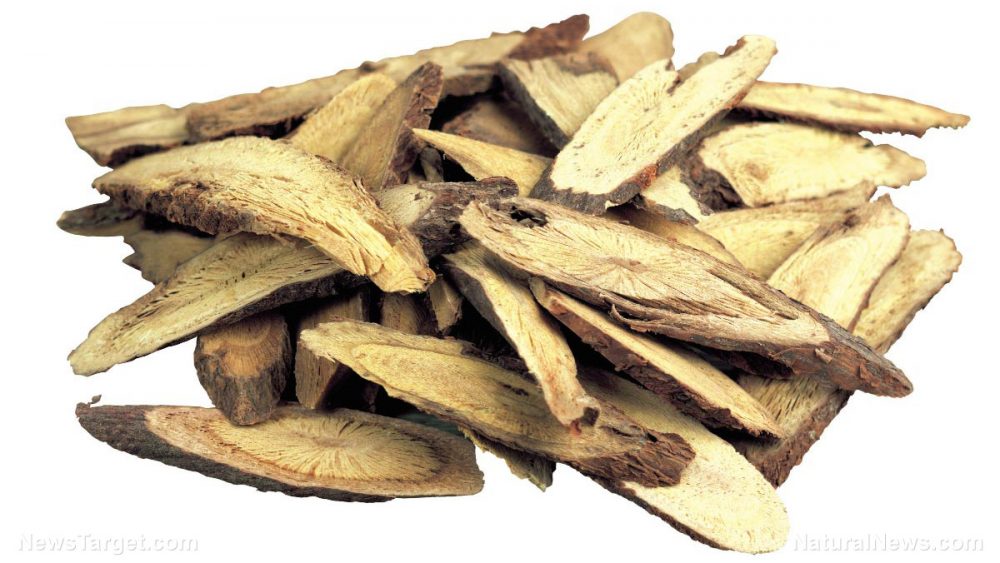
Advertisement
When you ask people if they like licorice, you’re likely to get a spirited response. Some people can’t get enough of its unique flavor, while others can’t stand the sight of it. It turns out that it’s not just its taste that inspires a gamut of reactions; its use in fighting breast cancer is equally controversial. Some experts warn that caution is needed, while others say it contains some very powerful cancer-killing properties.
A comprehensive review that was carried out by the Universiti Sains School of Medical Sciences in Malaysia found that licorice contains four important bioactive immunomodulators: the anti-fungal ajoene, which is also found in garlic; the anti-cancer lignin arctigenin; the antioxidant beta carotene; and glabridin acid, which prevents the damage oxidation causes to DNA.
Other studies support the use of licorice in breast cancer prevention and healing. For example, Rutgers University researchers have found that a polyphenol molecule in licorice root known as beta-hydroxy-DHP can stop not just breast cancer but also prostate cancer tumor cells in their tracks without affecting healthy cells.
Other studies have shown licorice root can aid breast cancer healing and prevention thanks to its ability to balance testosterone metabolism, reduce cortisol, and decrease the reuptake of serotonin. It’s also a powerful immune regulator, promoting T-cell growth and reducing inflammation.
A Chinese study, meanwhile, found that that the dimethyl sulfoxide in licorice root extract could affect estrogen levels in estrogen-positive breast cancer, serving as a preventive in a dose-dependent way. The compound stopped the proliferation of cancer cells in higher doses while having the opposite effect in lower doses. It has long been used to balance hormones and address menopausal issues in Chinese medicine.
According to Memorial Sloan Kettering Cancer Center, the isoflavone compounds in licorice mimic estrogen in the body, and they can also kill some types of viruses and bacteria. Licorice also contains a compound known as carbenoxolone that has been used for treating esophageal and stomach ulcers.
Use licorice with caution
This is very promising, but it doesn’t mean you should go out and stock up on licorice. First of all, you definitely don’t want to use licorice candy to get the benefits of licorice root. Besides the fact that the candy often contains very little of the herbal extract, it’s also loaded with sugar, which can make cancer worse because cancer feeds on sugar. Also, Natural Health 365 points out that many of the commercial licorice candy products on the market are created with ammonium chloride, which has been linked to acute respiratory problems.
Candy aside, it’s also a good idea to look for deglycyrrhizinated licorice, or DGL. This has the glycyrrhizin removed, a compound that has been known to cause the body’s potassium levels to drop. This can lead to high blood pressure, swelling, abnormal heart rhythm, congestive heart failure, and lethargy. Experts have also cautioned that licorice products shouldn’t be used for longer than four weeks at a time.
It’s clear that licorice has some cancer-fighting potential, and perhaps researchers will one day be able to find a way to use its properties to address the disease without putting people at risk of side effects.
Sources for this article include:
Advertisements







